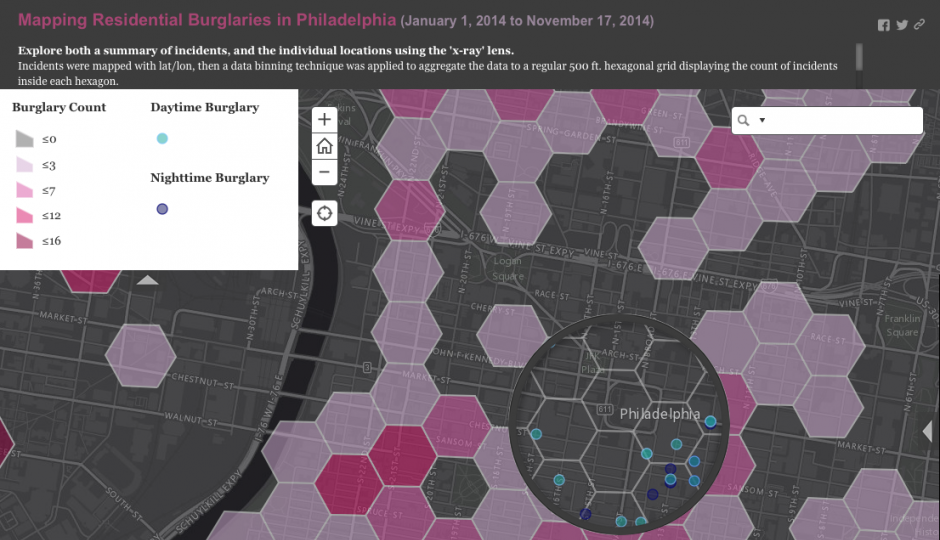The Open Data Movement Still Mostly Matters Just to Geeks
OpenDataPhilly has survived some rocky times in its first four years. Initially, the community-run data portal and app warehouse had the basic challenge of acquiring sufficient datasets from City Hall, which was not always willing to hand them over. Then, the city’s first data czar, Mark Headd, stepped down. Toss in an organizational imbroglio — when AxisPhilly, the group running OpenDataPhilly, went belly up — and the website’s early history seems like a series of fits and starts.
But the long-term viability of OpenDataPhilly ultimately rests on how much the public will buy in to its utility. While journalists and techies may have gasped at some of the projects shaped from the portal’s data — like this cool graphic on the School District’s budget or a map showing that more bike thefts occur right across from City Hall than anywhere in the city — the website (and its various products) is supposed to be a civic tool with broader appeal down the road. Which is why a new Pew Research study on Americans’ views of Open Data Government offers an instructive read.
The overall takeaway from the polling is that Americans have mixed opinions on the potential impacts of open-data resources, along with how much data should be made available to the public. And most of those views are not necessarily informed by strong interaction with open data — especially at the local level. Only 32 percent of poll respondents accessed local-government websites or data in the last year. And when they did, it was typically for pedestrian reasons like paying a parking ticket or checking the office hours of a city office — not scouring a citizen-made hexagonal map charting city burglaries.
Still, a majority of respondents think open data can assist journalists with covering government, but a minority believes that it’ll result in better government. And only 7 percent of people felt local governments did a “very effective” job releasing data.
When it comes to sharing personal information, Americans are hesitant to make all data public. While 62 percent endorse making criminal records public, only 22 percent believe information on homeowners and mortgages should be. And how much should be shared in the name of transparency and accountability, in general, correlates to which people trust government. Democrats are more likely to be proponents of open data than Republicans.
Reactions to the Pew report from open-data advocates has been similar to the respondents: mixed. Writing for the Knight Foundation — one of the funders of OpenDataPhilly — Jonathan Sotsky had this to say:
Undoubtedly, a greater focus is needed on explaining to the public how increasing the accessibility and utility of government data can drive accountability, improve government service delivery and even provide the grist for new startup businesses. The short-term conundrum government data initiatives face is that while they ultimately seek to increase government trustworthiness, they may struggle to gain structure because the present lack of trust in government undermines their perceived impact.
There’s no doubt that Americans will be seeing a lot more open-data initiatives in the future. In addition to the Pew report yesterday, Michael Bloomberg’s charitable organization unofficially announced a $42-million grant program aimed at making better use of data in 100 cities, although Philly won’t be eligible (only cities with populations of 100,000 to one million are).
Nonetheless, with OpenDataPhilly, this city is part of a growing fraternity of municipalities who’re crafting civic technology out of newly-public government data. Hopefully they’ll come a time when the public, and not only hackers, appreciates its value.
